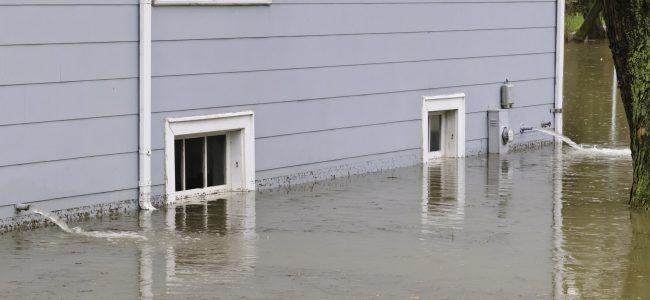BlogLine
Res judicata dooms claim against Illinois real estate broker
9/20/23

By: Joshua W. Zhao and Donald Patrick Eckler
Does the doctrine of res judicata bar a plaintiff’s claims against a real estate broker if the basis for those claims was undiscovered in a prior action against the seller that were not discovered until post-judgment? In Wilcox v. Wright, 2023 IL App (2d) 220219-U, the Appellate Court of Illinois held that the answer is yes.
In January 2016, plaintiffs entered a contract with seller to purchase seller’s property. Prior to closing, seller executed a declaration wherein she denied any flooding affecting the property or any defects in the foundation or basement. Seller employed her daughter-in-law, Heather Wright, who was employed by Coldwell Banker at the time, as her real estate agent. After the closing of the sale, plaintiffs experienced basement flooding as well as outdoor flooding that exceeded the height of the basement window wells and the foundation. In November 2018, plaintiffs filed an amended complaint against seller, alleging fraud and breach of contract claims based on defects in the declaration and the actual flooding. At a hearing in October 2019, characterized as a stipulated bench trial, the court entered judgment in favor of plaintiffs.
In 2020, at a deposition during post-judgment proceedings following the first action, seller’s daughter testified that Wright had knowledge of the flooding issues and the inaccuracy of the declaration. In November 2021, plaintiffs filed suit against Wright and Coldwell Banker based on this new information, alleging substantially similar claims as were alleged against seller. Defendants moved to dismiss on res judicata grounds, which the circuit court in the second action granted. Plaintiffs appealed.
On appeal, plaintiffs argued that res judicata did not apply because the cause of action was distinct between the 2018 action and the 2021 action due to plaintiffs’ new information that Wright and Coldwell Banker had actual knowledge of the issues affecting the property and of the falsity of seller’s declaration. Plaintiffs also argued that defendants’ misconduct would make the application of res judicata substantially unfair to plaintiffs.
The appellate court disagreed, finding that the 2018 action and 2021 action satisfied the transactional test for application of res judicata adopted by the Illinois Supreme Court and established the identity-of-cause-of-action element of res judicata. The court explained that the 2018 action and the 2021 action both revolved around seller and defendants’ knowledge, that seller and defendants engaged in the same conduct and had the same motivations and that the present issues could have been easily resolved in a single trial. As a result, the court found that the 2018 action and 2021 action grew out of a single, common core of operative facts where res judicata would bar the 2021 action.
Additionally, the court found that application of res judicata would not be unfair to plaintiffs because plaintiffs chose to have a stipulated bench trial instead of conducting discovery. It was the plaintiffs’ duty to investigate any potential causes of action arising from the events at issue. By choosing to forgo discovery, the court found that plaintiffs’ inability to raise their new claims in the first action was due to plaintiffs’ own failure to thoroughly investigate and that res judicata applied.
This result is akin to the holding in Nutter v. Schiller, DuCanto & Fleck, LLP, 2022 IL App (2d) 210376 where the appellate court affirmed a lower court’s finding of res judicata in a legal malpractice case where there was a fee petition adjudicated in favor of the defendant lawyers in an underlying family law proceeding. The family law court held that the defendant attorneys’ fees were reasonable and necessary. As a result, the plaintiff’s legal malpractice action was barred by res judicata as the plaintiff had the opportunity to raise his legal malpractice arguments in opposition to the fee petition.
These two cases demonstrate the importance of res judicata to defendants in professional liability cases.
For more information, please contact Joshua Zhao at Josh.Zhao@fmglaw.com, Donald Patrick Eckler at patrick.eckler@fmglaw.com, or your local FMG attorney.
Share
Save Print